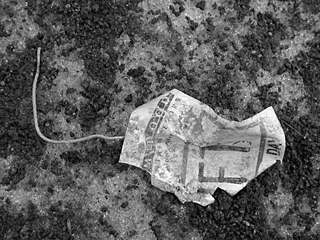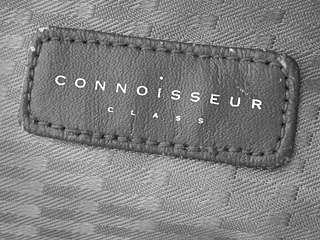| | 
- 3 April 2002
- No. 190 (cartoon)
- What’s happening?
Not much. Nothing, really. 
- 4 April 2002
- Fizzy Alcohol
- Three years ago I wrote about the Kirin beer scam. I complained that some “Japanese” beer was actually concocted in a U.S. factory that makes American beer-flavored water. Apparently, the Japanese workers learned a few nasty tricks from their perfidious U.S. colleagues. The proof: happoshu.
Happoshu is literally “fizzy alcohol,” a Japanese beer-flavored substitute for the real thing. Happoshu, with less than one fourth the malt of beer, costs forty percent less than beer beer. And since Japanese beer taxes are based on malt content, not alcohol content, happoshu’s mix of malt, corn starch, and other fillers mean more profits for the brewery. I’ll probably never drink happoshu, since Japan’s malt-based tax incentives are irrelevant to the export market. I won’t miss drinking happoshu, an experience that must be like drinking a mainstream American beer, such as Anheuser-Busch’s fizzy beer-flavored alcohol, Budweiser. Still, I admire the honesty of the Japanese beer marketers. At least they have the guts to call a fizzy alcohol beverage “fizzy alcohol,” and not “The King of Beers.” 
- 5 April 2002
- The Hoo
- Today, I read about a Sri Lankan unit of measurement, the hoo. According to the author of the brief newspaper piece, the hoo is the distance a person making a “hoo” sound may be heard in the forest.
I have a passing acquaintance with fuzzy logic, and use fuzzy measurement (getting “enough to eat”) on a daily basis. Even so, it never occurred to me that their might be anything as poetic—in the positive sense—and useful as fuzzy distances, anything as wonderful as a hoo. After I conclude this notebook entry, I shall write a note to Ranger Dave suggesting that all back country campers be required to establish camps at least one hoo away from the nearest tent. Hoo! 

- 6 April 2002
- A Splendid Day in the Sierra
- Some friends and I drove to the Sierra today. They went skiing and snow boarding; I did not. Although I love being in the mountains, ski resorts always feel like a human anthill. A very expensive human anthill.
Since I was in an overpopulated location, I decided on unnatural pursuits. Specifically, I decided to seek out and photograph debris exposed by the melting snow. I wasn’t disappointed; I found some thirty-three objects, including a spoon, a can, a match, a beer bottle, a paper cup, a plastic lid, a bandage, a plastic cup, a paper cup, a lip balm dispenser, two separate socks, a metal bottle cap, part of a shoe string, a metal nut, two lift tickets, a beer can, a rubber band, a plastic object, three cigarette butts, a cereal package, a case for sunglasses, a plastic bottle cap, a water bottle, a match book cover, a cookie box, a tape cassette, and a piece of cardboard. Later, I may or may not do something with the images. I had a wonderful time in the mountains. My friends had a great time in the mountains. It’s difficult not to have a marvelous time in the mountains. 

- 7 April 2002
- No More Connoisseur Class
- “Wow!” exclaimed Pamela after she emerged from the laboratory head, “where did that old toiletry bag come from?”
“What toiletry bag?” I replied. “The ‘Connoisseur Class’ bag,” she said. “I got that years ago when I scammed a seat in the ruling class section of a flight out of Geneva,” I explained. “That must be almost ten years old,” Pamela remarked, “United discontinued the Connoisseur Class marketing program ages ago. Do you know why?” “Don’t know, don’t care,” I responded with uncharacteristic honesty. “Because no one could spell ‘connoisseur,’ that’s why,” Pamela announced. “I wonder if that’s the real reason,” I responded. “I agree that it’s impossible to spell ‘connoisseur,’ but I suspect the real reason may be fashion.” “Fashion?” asked Pamela. “It’s like Jean Cocteau said, ‘Fashion is everything that goes out of fashion,’” I concluded. “I suspect that connoisseurship was too volatile a concept for a long-term marketing campaign.” 
- 8 April 2002
- Eighty-Two and Ninety-One
- Today would have been my father’s eighty-second birthday. Eighty-two, imagine that! I can’t really imagine that. Or, rather, I can’t imagine him—or me—at eighty-two. The eighties seem like the first time in life when the disadvantages of aging finally outweigh the advantages.
I’m thinking of my friend Robert Cameron, who’ll acknowledge—I don’t think “celebrate” is the right word in this case— his ninety-first birthday later this month. Robert’s more or less blind in one eye, and has increasingly difficulty seeing out of the other. Robert’s loss of sight is all the more tragic because he’s a photographer. He’s published a number of books of aerial photographs of the world’s great cities. Once, when Robert told me he was about to start on a new project, I asked him if he was running out of cities. “No,” he replied with frustration, sorrow, and anger, “I’m running out of time.” When the subject turned to business, Robert casually mentioned that he has three hundred thousand dollars set aside for an emergency. “Sooner or later I’ll need a new organ,” he explained. I don’t think about eighty-two or ninety-one very often, for all the obvious reasons. 
last weak | index | next weak
©2002 David Glenn Rinehart
| |

